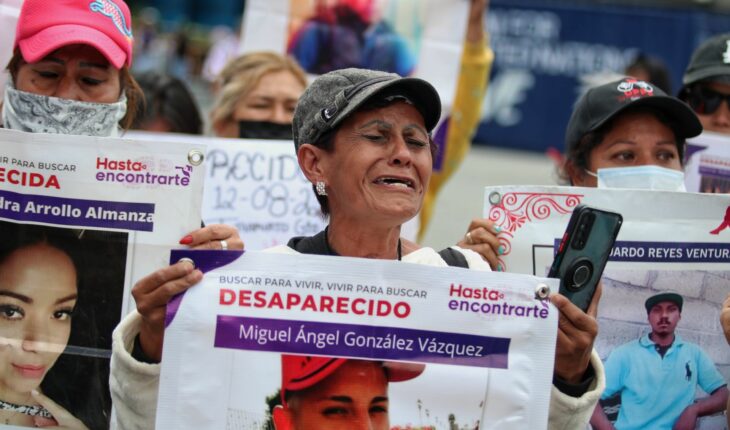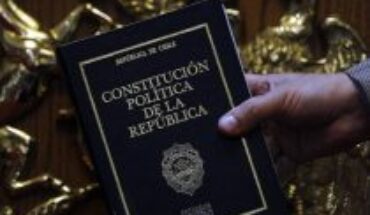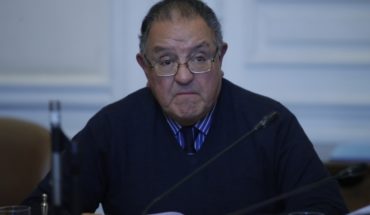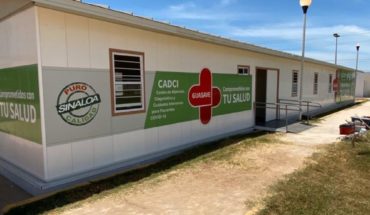After more than four years of non-compliance; and in response to an amparo lawsuit filed by Olimpia Montoya, a relative of a disappeared person in Guanajuato, a judge ruled that the Attorney General’s Office (FGR) failed to create the National Forensic Data Bank and ordered it to create and implement this tool within 40 days.
Resolution 250/2022, of October 5, responds to the amparo promoted by Olimpia, with the accompaniment of the Pro Juárez Center, in claim to various affectations to their right to truth and justice as a result of the lack of operation of the National Forensic Data Bank.
The bank is one of the essential instruments for the identification of human remains provided for in the General Law on Forced Disappearance of Persons, Disappearance Committed by Individuals and the National System for the Search of Persons.
The importance of the National Data Bank
The pending mechanisms, the insufficiency of forensic services and the lack of a public policy of human identification in relation to the disappearance of people have contributed to perpetuate the forensic crisis in Mexico, before which, according to the UN Committee on Enforced Disappearances (CED), it would take 120 years or more to analyze the remains of the more than 52 thousand deceased people who, It is estimated, they remain unidentified in the country.
Olimpia, sister of Marco Antonio Montoya, who disappeared in Guanajuato on March 18, 2017, and who today belongs to the collective Proyecto de Búsqueda en Celaya, explained that the bank is essential to find the loved ones of the families who are looking for them.
Until now they must, on their own, ensure that their genetic profiles are collated in each entity where the disappearance may have occurred, taking them personally to each of the state prosecutors’ offices.
“If there is a real bank, we would have the assurance that our family member is not in another municipality or state,” he said.
That led her to file the amparo on August 30, 2021, whose results reflect the struggle of all mothers who have died without knowing where their relatives are, because it is not easy to look for an absent person without the mechanisms that the authorities should provide.
At a press conference, César Contreras, lawyer of the Pro Center, explained that there are about 34 different genetic databases in Mexico, but the states do not share the information they have updated and in real time, so it is estimated that the FGR only has one in three genetic profiles throughout the country.
The bank is an indispensable tool that the agency should have had ready in its entirety in January 2019.
The judge’s decision is a precedent in terms of the right of all persons to be sought and, where appropriate, identified, as well as to truth and justice.
In the year of litigation that took this resolution, the Prosecutor’s Office did not provide any evidence that the bank exists.
In the most recent report of its visit to Mexico, the UN CED expressed concern that four years after the law came into force, a national forensic data bank, a national registry of unidentified and unclaimed deceased persons, or a national registry of graves have not been created.
The resolution recognizes that there is a serious crisis of disappearance, particularly in Guanajuato, and from this it is determined that there is a right to human identification, Contreras explained. The non-existence of the bank makes it difficult to search for and disappear people in general.
The court also expressed that it is no stranger to the pain caused by his disappearance, and recognizes that the relatives have been forced to implement search and investigation actions on their own.
The requirement of its creation does not refer only to the existence of the technological tool, but that it is operational and that it allows the recovery of data in morges and mass graves, which have remained forgotten in the prosecutor’s offices. “We call on the #IdentificaciónYa, and for the country’s prosecutors’ offices to finally give an institutional response to so many families,” Contreras said.
Four years without complying with the law
The General Law on Disappearance establishes, in its third section, that the National Forensic Data Bank should be satisfied with “the databases of the forensic records of the Federation and the federative entities, including those of genetic information, which must be interconnected in real time”. In the same way, it foresees its interconnection with search and identification tools and with trained personnel.
In this regard, Jorge Verástegui, of the United Forces for Our Disappeared in Mexico (Fundem), sHe stressed that compliance with the creation and start-up of the bank does not require the FGR to start from scratch, but precisely to collect and coordinate the exchange and exchange of information from the bases of the states to form the National Bank.
According to the law, the bank’s function would have to be complemented by permanent and continuous cross-referencing of information with the National Registry of Missing and Unlocated Persons (RNPDNO), as well as with a National Registry of Deceased and Unidentified Persons, and other instruments that may contain forensic information relevant to the search for persons.
The instrument should have forensic expert information for the identification of persons, in the same way as a database of genetic information of relatives in the first degree in an ascending or descending straight line, or in the second degree in a collateral line, of missing and unlocated persons, as well as that of third persons in cases that the ministerial or judicial authorities require it as data or means of proof.
In addition to this, the General Law details that local prosecutors and prosecutors’ offices must coordinate the operation of their respective registry and permanently share the information with the FGR, which would have to issue guidelines for the authorities of the different levels of government to send the data in an approved manner. In addition, you should administer a Federal Forensic Record.
The operation of the bank would also require clear coordination between local prosecutors’ offices, the FGR; and autonomous search bodies. Its operation would also be useful for other mechanisms, such as the National Centre for Human Identification.
The number of people lying so far in mass graves, forensic service facilities, universities and forensic shelter centers could be much higher than the estimate of 52,000. The lack of a National Forensic Data Bank prevents up-to-date statistics.
“Thank you, Olympia”
“Thank you, Olimpia, because by having dared to challenge the system and put Marco Antonio’s name in a lawsuit, you are helping us search for all our disappeared in Mexico. I want to express my deepest gratitude for showing us that since they are gone, there is no fear,” María Luisa Núñez Barojas, of the Voice of the Disappeared Puebla collective, said at a press conference.
He assured that relatives and groups celebrate that the struggle and pain of the families have managed to echo in a federal judge who became the maximum hope when he did not get answers.
“In Puebla it has not been possible to tear down that wall. We have had to walk a viacrucis in which we have not obtained favorable resolutions or with amparos, “he lamented.
The judge’s decision is, for the rest of the families who are looking for, a hopeful action. The ruling opens the door to work on the significant backlog in forensic matters in the country. That there is an authority that does not succumb to the speeches of the government and the attorney general’s office means that families are put at the center and their rights are put first, said María Luisa.
He recalled that institutions must be at the service of the community and citizens, and since they have not complied with guaranteeing security so as not to have a crisis of disappearances, they must comply with the legal provision of creating the bank.
“It’s a debt they’re never going to pay us; they are not going to compensate for the damage and what the inefficiency of the State has generated for families in Mexico. This sentence is a giant step; It means a ray of life for those of us who have lost confidence in institutions. Families come every day to search among the dead, since identification and search in life is not guaranteed,” he claimed.
He stressed the importance of this mechanism being operational, and not just believed as one more. The member of the Fundem added that these actions not only benefit a case, but allow the path of other families to be less painful and tortuous.
Before a prosecutor’s office that has acted criminally, he said, and if after the resolution does not comply with the duty to start the bank, the question for the State is whether, in the same way as it has forced the families to take charge of the search, it is also waiting for them to create a national forensic system.
What we do at Animal Político requires professional journalists, teamwork, dialogue with readers and something very important: independence. You can help us keep going. Be part of the team.
Subscribe to Animal Político, receive benefits and support free journalism#YoSoyAnimal





